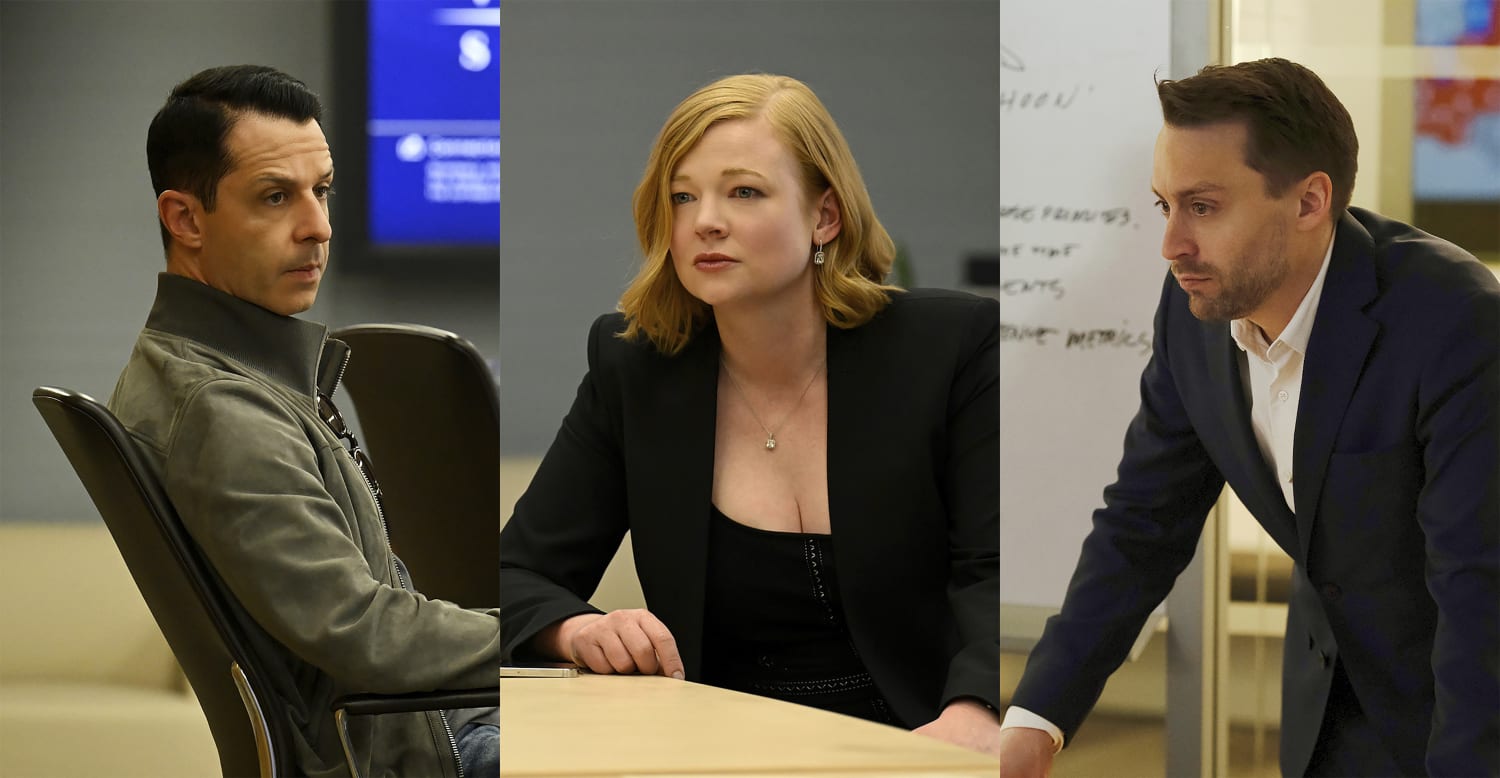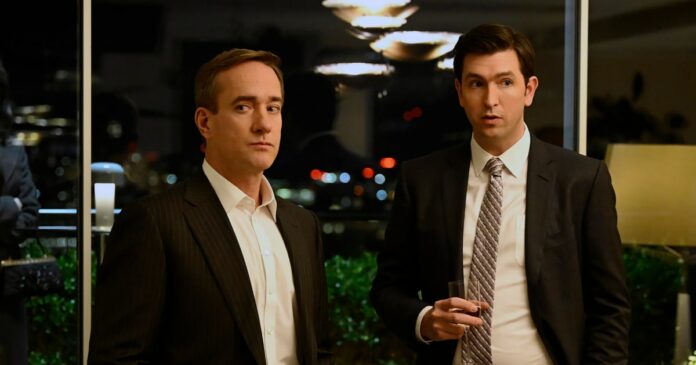
Jesse Armstrong, the British comedy veteran who created the Emmy-winning series and wrote most of its key episodes, said Tom’s triumph was mapped out long ago.
“That’s something I thought was the right ending for quite a while now,” Armstrong said in a post-credits featurette. “Even though he’s not the most powerful monarch you’ll ever meet, his power comes from Matsson. Those figures who drift upwards and make themselves amenable to powerful people are around.”
Tom may have seized the crown — but in many respects, all the corporate gamesmanship was beside the point.
When the series premiered in June 2018, the second summer of Donald Trump’s presidency, some viewers saw it as a spin on the smash hit “Game of Thrones,” a fantasy about the fight to rule the Seven Kingdoms. Yet the similarities between the two were arguably superficial at best. Yes, “Succession” revolved in large part around the question of who would take over for Logan Roy (Brian Cox), an ailing tycoon clearly modeled on Fox News chief Rupert Murdoch, although its thematic concerns went far beyond palace intrigue.
In the course of 39 episodes, “Succession” revealed itself as a moral tale for an age of extreme inequality, concentrated wealth and media consolidation. The main characters were outrageously rich, their lives a procession of gleaming skyscrapers and Italian villas. Their fortunes insulated them from the real-world consequences of their actions, whether it was Kendall’s playing a role in the drowning death of a waiter at Shiv’s wedding or the chaos that followed after the family’s right-wing news network, ATN, prematurely called a presidential election for a Nazi-admiring demagogue.
The world burned, but the Roys mostly came out unscathed.
Kendall, Roman and Shiv took turns gunning for the top job, but Armstrong and his team of writers were always clear-eyed about the fact that Waystar Royco was a decaying legacy media brand losing market share to the big tech firms. What the siblings were so desperate to protect, after all, amounted to a group of aging assets rife with institutional corruption — “bits of glue and broken shows,” as Roman tells Kendall.
The show was just as compelling as a toxic family melodrama, at once Shakespearean in structure and operatic in intensity. Logan Roy was a tyrant and an abuser, but his children nonetheless vied for his approval, only faintly aware that his love would not quite fill the holes in their hearts. The siblings cared for one another, sure, but their rivalry ran deep — and as the last plot twist proved, their mutual protection pact was always paper-thin.
The saga of the Roys gave some viewers the sensation that they were peeking inside real-world media dynasties, adding psychological texture and context to powerful figures who might otherwise seem remote, namely Murdoch and his children. Media watchers also drew parallels between the Roys and the Redstones, the clan at the top of the Paramount kingdom.
Of course, “Succession” still invited loyal viewers to play the parlor game: Who would “kill dad” and take their rightful place on the throne? Twitter users spent years floating theories about the endgame. (In one prescient TikTok video that went viral ahead of the finale, an expert on names said Tom’s surname might have been an allusion to the baseball player Bill Wambsganss, who was most famous for pulling off an exceedingly rare unassisted triple play.)
Whether you savored “Succession” as a savagely funny satire or a grim political allegory or a delicious Sunday night soap opera — or, yes, a fitting replacement for “Game of Thrones” — many viewers are likely to come away from Sunday’s finale with the same queasy feeling in the pit of their stomach. Tom won, but everybody lost.


